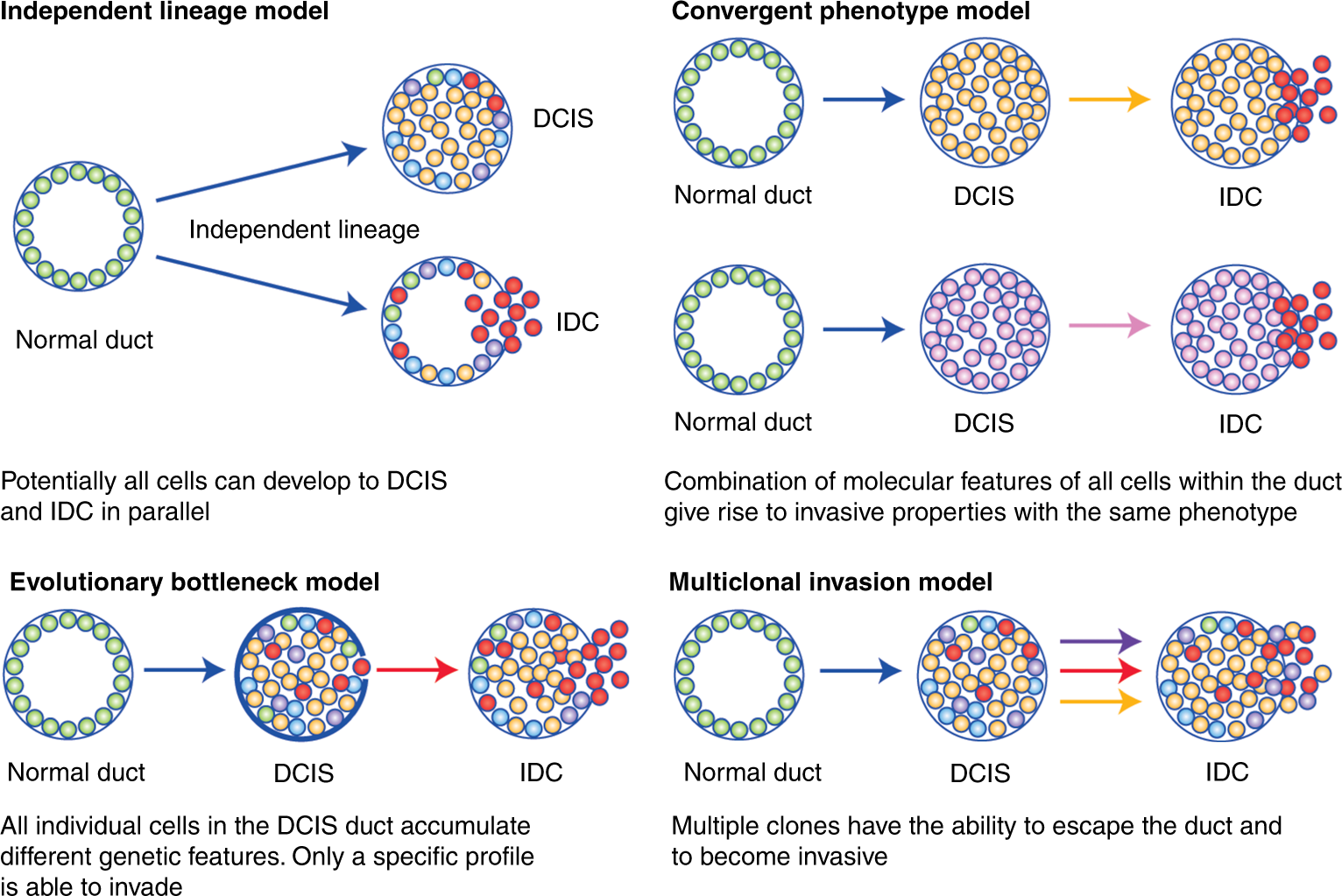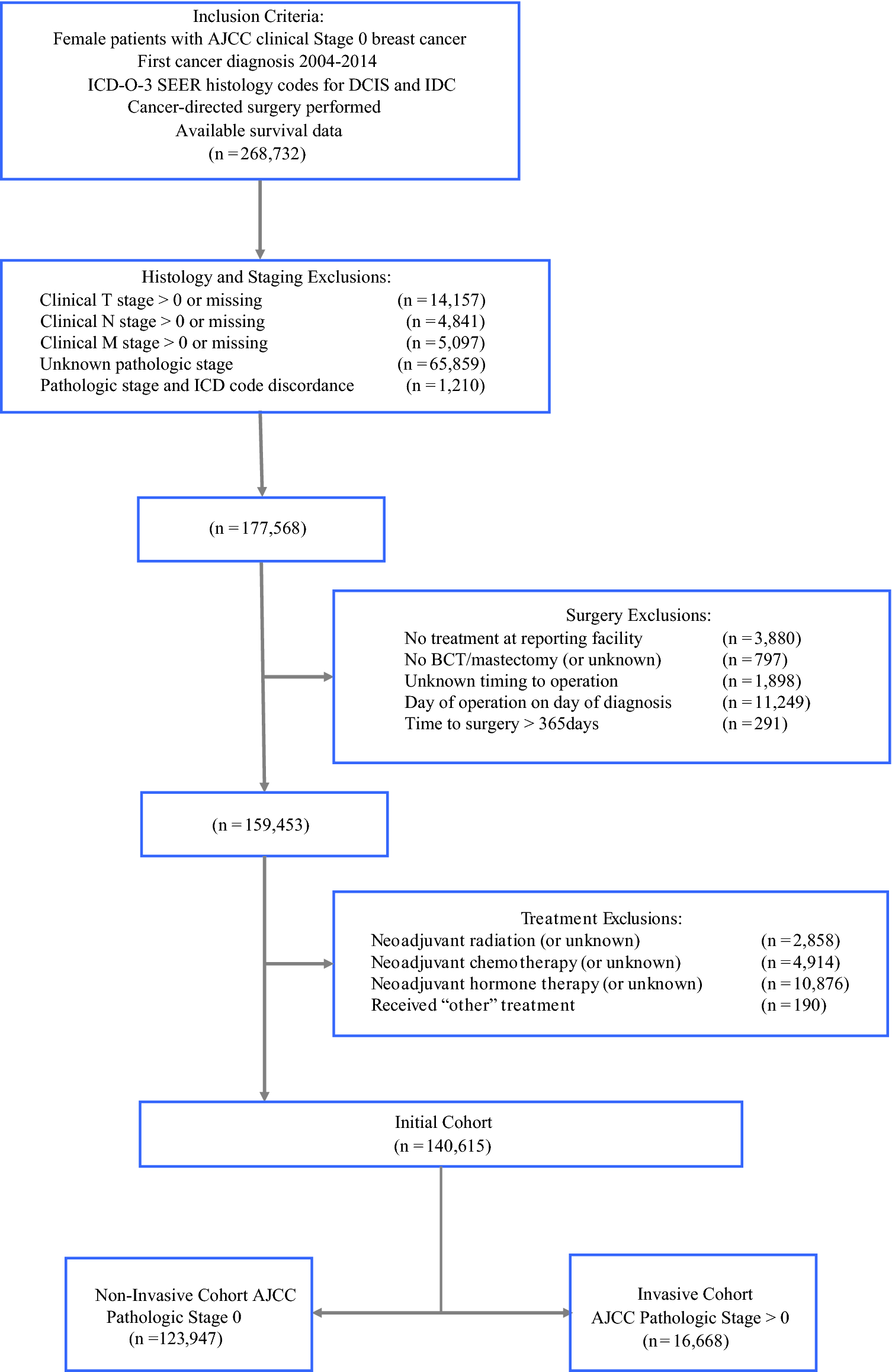Radiation For Dcis
It is a well respected indicator of your risk of recurrence and whether you will benefit from radiation treatment. Both hormonal therapy and radiation help reduce the risk of the dcis recurring coming back as well as the risk of invasive cancer.
Treating the whole breast with radiation after lumpectomy remains the standard of care.

Radiation for dcis. Ductal carcinoma in situ dcis means the cells that line the milk ducts of the breast have become cancer but they have not spread into surrounding breast tissue. Have you asked about getting the oncotype dx for dcis test done. That and not the delay in radiation therapy for dcis could explain their higher rate of later breast cancer.
But my dcis was small only 4mm no palpable lump and was completely removed by the biopsy. Dcis is considered non invasive or pre invasive breast cancer. This is a common problem with observational studies namely that important.
My dcis was grade 3 and all 3 of my doctors recommended radiation. The van nuys prognostic index is a good tool to determine if you might be a good candidate. Routine radiation therapy after dcis was common in the past but some newer dcis treatment guidelines say that women at low risk for recurrence may be able to skip radiation therapy after surgery.
However for low or intermediate grade dcis sometimes radiation and tamoxifen can be omitted. Radiation most often comes from a machine that moves around your body precisely aiming the beams of radiation at points on your body external beam radiation. Radiation treatment is usually given as daily treatments 5 days per week over 5 to 7 weeks.
One of the most common questions i receive on peoplebeatingcancer is from one of the 60000 women who have been diagnosed with ductal carcinoma in situ dcis breast cancer stage 0 if they should have radiation after their lumpectomy after they surgically remove the abnormal cells that caused the dcis diagnosis. In cases of dcis radiation therapy can reduce the risk of the cancer coming back by about 60. Dcis ductal carcinoma in situ is a non invasive breast cancer.
In dcis the abnormal cells are contained in the milk ducts canals that carry milk from the lobules to the nipple openings during breastfeeding. Radiation therapy after lumpectomy reduces the chance that dcis will come back recur or that it will progress to invasive cancer. In fact some dcis patients decide to have a mastectomy because they do not want to undergo radiation.
For most dcis patients standard of care is mastectomy or lumpectomy with radiation. Doctors usually recommend radiation therapy for lumpectomy patients but since it is inconvenient and has some side effects many women prefer to avoid it. Radiation therapy reduces the risk of dcis but increases the risk of side effects.
 Ductal Carcinoma In Situ To Treat Or Not To Treat That Is The
Ductal Carcinoma In Situ To Treat Or Not To Treat That Is The
www.nature.com
 Preoperative Delays In The Treatment Of Dcis And The Associated
Preoperative Delays In The Treatment Of Dcis And The Associated
link.springer.com
Experts Say Dcis Requires Focus On Genomics And Microenvironment
www.onclive.com
Physicians Dcisionrt Info Preludedx
preludedx.com
 When Is Active Surveillance Appropriate In The Treatment Of Dcis
When Is Active Surveillance Appropriate In The Treatment Of Dcis
www.ascopost.com
 Treatment For Dcis Susan G Komen
Treatment For Dcis Susan G Komen
ww5.komen.org
 Non Radiation Screening Dcis Breast Cancer Fibrocystic
Non Radiation Screening Dcis Breast Cancer Fibrocystic
www.socalprohealth.com
 Radiotherapy For Ductal In Situ Carcinoma Ups Mortality Risk In
Radiotherapy For Ductal In Situ Carcinoma Ups Mortality Risk In
medicalxpress.com
 Nccn Clinical Practice Guidelines In Oncology Breast Cancer
Nccn Clinical Practice Guidelines In Oncology Breast Cancer
www.medscape.org
0 Response to "Radiation For Dcis"
Post a Comment